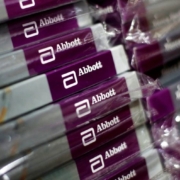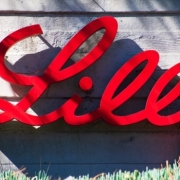India’s Cipla signed a deal with Eli Lilly to sell and distribute two of the U.S. drugmaker’s best-selling diabetes treatments in the country, the companies said in a joint statement on Oct. 4.
Bausch Health Companies Inc. agreed to pay $300 million to settle an antitrust lawsuit accusing it of illegally maintaining a monopoly on the diabetes drug Glumetza, enabling a nearly 800 percent price hike in 2015.
The number of young people with the most prevalent form of diabetes nearly doubled in the United States from 2001 to 2017, according to a study published on Aug. 24.
Vertex Pharmaceuticals and Arbor Biotechnologies announced a new collaboration to enhance efforts in developing ex vivo engineered cell therapies, using Arbor’s proprietary CRISPR gene-editing technology for select diseases.
Abbott Laboratories will pay $160 million to resolve claims that two of the company’s units submitted false claims to Medicare by providing kickbacks to diabetes patients, including “free” or “no cost” glucose monitors, the U.S. Department of Justice said.
The U.S. Food and Drug Administration approved Viatris and Biocon Biologics’ Semglee (insulin glargine-yfgn injection) as the first interchangeable biosimilar product, which is indicated to control high blood sugar in adults with Type 2 diabetes as well as adults and pediatric patients with Type 1 diabetes.
The United States Food and Drug Administration approved Bayer’s Kerendia (finerenone), a first-in-class nonsteroidal mineralocorticoid receptor antagonist indicated to reduce the risk of sustained eGFR decline, kidney failure, cardiovascular death, non-fatal myocardial infarction and hospitalization for heart failure in adult patients with chronic kidney disease associated with type 2 diabetes.
The U.S. Food and Drug Administration on July 6 declined to approve Provention Bio Inc.’s experimental diabetes drug, citing insufficient data, sending the company’s shares down about 28 percent
Eli Lilly’s investigational diabetes drug tirzepatide is showing significant promise in targeting A1C levels and weight loss in patients with type 2 diabetes, including those who had never been previously treated for the disease. In other positive clinical results presented at the American Diabetes Association’s 81st Scientific Sessions meeting, Novo Nordisk data demonstrated an investigational 2mg dose of injectable Ozempic (semaglutide) generated statistically significant and superior reductions in A1C compared to a 1mg dose of Ozempic.
AstraZeneca Plc’s diabetes drug significantly reduced blood sugar levels in adolescents aged 10–17 with type 2 diabetes in a late-stage study, the UK-based drugmaker said.










